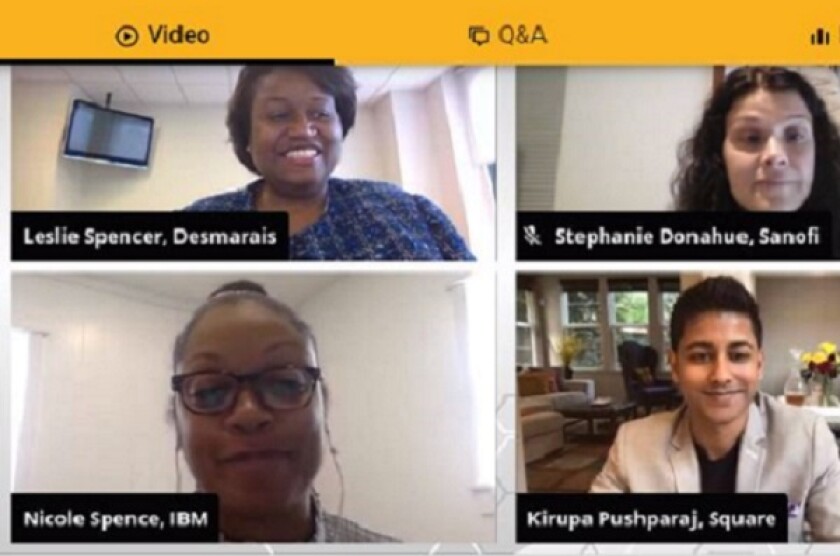It is vital that intellectual property lawyers avoid getting stuck in siloes, and that they promote soft skills when mentoring junior staff, according to in-house counsel at IBM, Sanofi and Square.
Panellists spoke about these topics and about IP diversity in a panel titled “Developing the next generation of IP leaders” on October 7 at Managing IP’s US Patent Forum.
Kirupa Pushparaj, IP director at mobile payment company Square in California, said IP attorneys sometimes get pigeonholed into an IP or technical role.
He said it is a misconception that corporate and general litigation attorneys are the only lawyers that can become general counsel, and argued that IP leaders have insight into every aspect of how various products work and real knowledge of their businesses.
IP attorneys should work to knock down the idea that they can only do IP, and to get involved in areas of the business besides IP, he added. “Do not get branded as just an IP person. It hurts your growth.”
Stephanie Donahue, senior director of patent litigation at Sanofi in New York City, said attorneys need to cultivate emotional intelligence as they ascend through the ranks.
She said lawyers can become leaders of functions that they don’t have direct experience in as they obtain more senior positions. Attorneys should therefore develop soft skills so they can support employees who have more technical experience in these functions, said Donahue.
Nicole Spence, IP attorney at IBM, added that everyone has emotional concerns, and that during COVID-19, home and work life have become more likely to blend into one another. Leaders should check in regularly with their teams and ask their employees how they are doing, said Spence.
Fostering diversity
Leslie Spencer, partner at Desmarais in New York City and who moderated the panel, asked speakers what in-house legal departments were doing to address diversity and the underrepresentation of women and people of colour in IP law.
Pushparaj at Square noted that although diversity is improving in the junior ranks, it is still poor among executive employees.
He said firms should take more proactive measures to develop their future leaders. When clients have questions, firms should let associates answer them and not just leave them to partners.
“I want to direct my question to the associate who’s doing the bulk of the work,” he said.
In-house lawyers should also do their part to encourage this leadership development, he added. His company encountered a case where a senior associate, who was a woman of colour, was doing the bulk of the work for the business. The company told the firm to promote the woman to partner or have her lead the work for the firm.
Spence at IBM added that one way to foster more diversity in IP is to raise more awareness of IP departments.
Using her own background as an example, she said that she studied molecular biology and was asked in her second year of law school if she had thought about IP. “And I was like: ‘I have no idea what you’re talking about.’”
As a result of being asked about the field, she decided to take a class and realised that she loved IP.
Spence added that conversations within companies can also help bolster diversity, and that IBM used the business communication platform Slack to establish these discussions with people from diverse backgrounds.
“It’s really good to see other people that look like you doing different things. You might not think it makes a big difference, but it can.”
Donahue at Sanofi said companies should also take care to interview diverse candidates. “You’ve got to start somewhere. Fortunately, companies and law firms are waking up and realising that diversity is incredibly important.”
Pushparaj said that Square asks candidates to submit written answers to hiring managers as part of the interview process, but anonymises the answers so managers don’t know which candidate they came from. That way, managers can assess the answers based solely on content, which helps them avoid unconscious bias, he said.
He said his company has seen some good results come from that method, and will continue to use it for future hiring.











